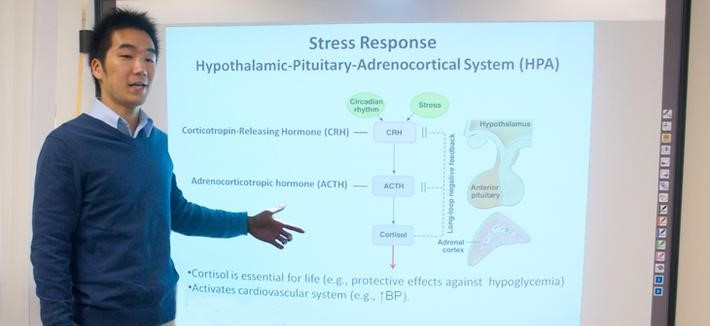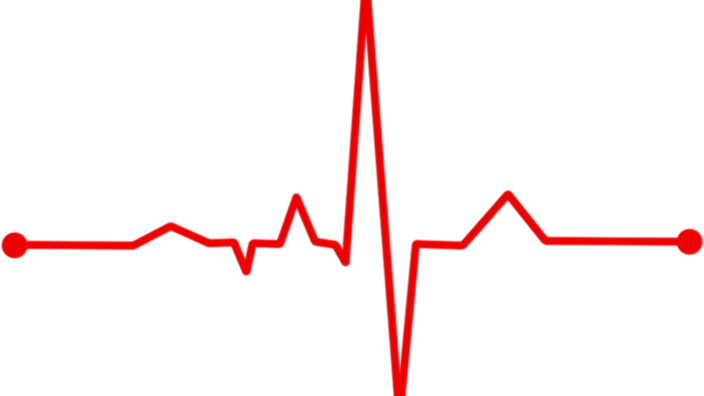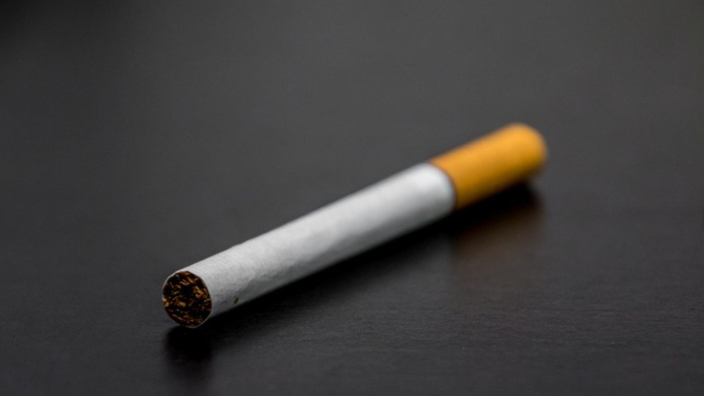Stress and Resilience Research Labs
Our laboratories are located within the University of Minnesota Medical School, Duluth and Twin Cities campuses. The laboratories were established in 1997 by Professor Mustafa al’Absi, PhD, to provide engagement in various research and training activities. Research programs conducted within Dr. al’Absi’s laboratories seek to identify psychophysiological, neurobiological, and behavioral mechanisms mediating effects of stress on addictive behaviors (tobacco, alcohol, and khat), and chronic diseases (obesity and hypertension). Our approach is transdisciplinary, and our collaborators include experts in multiple fields of medicine, physiology, pharmacology, and behavioral sciences.
Most recent publications:

Dr. al'Absi founded the Stress and Resilience Research Laboratories to facilitate a deeper understanding of the mechanisms mediating effects of stress on addictive behaviors. Since 1997, the Stress and Resilience Research Laboratories have served the global community in furthering the discussion surrounding addiction and stress in an effort to de-stigmatize addictive diseases.
Over the years, Dr. al'Absi and the SRRL team have worked to extend their reach in the local communities of Duluth and Minneapolis. You can find a listing below of various news articles:
Duluth News Tribune - John Lundy (02/19/2018) Duluth researcher looking at effects of cannabis on giving up tobacco smoking
News Tribune - Brooks Johnson (08/14/2017) Peek @ performance: Duluth research part of national study about work productivity Duluth
Fox News - MyHealthNewsDaily (10/23/2015) High Blood Pressure Can Make You Emotion-Blind
Mix 108 - Laura Peterson (04/25/2012) Get Paid to Quit Smoking with UMD Medical School Study
EurekAlert! (09/26/2007) Mustafa al'Absi Ph.D. and national team awarded major NIH grant

Research Participants Needed for the Following Studies:
Smokers Interested in Quitting Needed for "Stress and Cannabis Use" Study (Duluth & Minneapolis campuses)
Our laboratories are conducting a research study to compare the physiological and subjective stress responses of those who use and those who do not use marijuana and nicotine. The study is taking place at the University of Minnesota Medical School Duluth and Twin Cities campuses.
- Healthy individuals, ages 18+
- Participants will be compensated.
Healthy Participants Needed for "EasySense" Study (Duluth campus)
Our laboratories are conducting a research project on how changes in the body's normal functions; such as respiration rate, heart rate, and blood pressure, could be used to predict when a person is experiencing stress in "real-time". The study is taking place at the University of Minnesota Medical School Duluth Campus.
- Healthy individuals, ages 18+
- Participants will be compensated.
Research
The Khat Research Program (KRP)

We plan to establish a multidisciplinary research and training program focusing on Khat, a psychostimulant plant widely used in Africa and the Middle East associated with significant neurobehavioral and health effects. We will use this exploratory and developmental grant to achieve two primary goals. The first is to develop collaborative relationships and provide needed capacity-building resources that will include a series of research training workshops, establishing an Institutional Review Board, conducting relevant training on ethical standards of research, and organizing semi-annual meetings to develop future programmatic research. The second goal is to complete preliminary research to determine the cognitive, affective, and biobehavioral consequences of long-term Khat use. Khat users and non-users will be compared on their performance on tests of response inhibition, attention, concentration, memory, and hormonal and cardiovascular responses to acute stress. We will include two samples of Khat users, those who use Khat alone and those who use Khat and tobacco together. The purpose will be to examine the influence of the concurrent use of both substances. The program will take advantage of a unique population and setting by conducting this work in Yemen. The design of the preliminary research is geared towards maximizing the potential for advancing Khat-related research in this and surrounding countries and will facilitate later development of research that will guide efforts to develop methods to reduce the harm caused by khat and tobacco use. The combination of measures of the stress response and cognitive functioning will provide novel information on the impact of Khat use on important behavioral and neurobiological functions. We have assembled a multidisciplinary, international team with distinguished records and experience in all relevant topics. Both the training and research arms of the program will emphasize this breadth of expertise. This program will form a core part of our conceptualization of future research initiatives to further identify neurobehavioral effects of khat a concurrent tobacco use and develop means for effective intervention strategies.
This study is funded by the National Institutes of Health (NIH)/ National Institute for Drug Abuse (NIDA) and Fogarty International Center (FIC).
International Collaborative on Khat Research

A severe epidemic of Khat misuse is underway in East African countries leading to escalating rates of many physical and mental health problems. Khat is a natural amphetamine-like plant available and legally consumed in many countries in Africa. Although evidence links Khat use to substantial adverse effects on health, no systematic work has been conducted to address its impact on behavioral and mental health. We plan to establish a collaborative, multidisciplinary research partnership with scientists in Kenya where khat is widely used. Specifically, we plan to complete pilot research critical to developing a major R01 grant proposal to determine khat-related biobehavioral and mental health consequences. This collaboration will complement our existing cooperation with scientists in Yemen on the same topic. The project will include the following aims: a) conduct a pilot study at the University of Nairobi using primate, nonhuman model to determine the mechanisms of action of Khat, b) conduct a clinical pilot study to examine effects of long-term khat use on neurocognitive functions, and c) convene meetings among program leaders to solidify collaborative relationships, review progress, and plan future proposals. The outcome of this project will include critical preliminary data for future proposals, publishing, and participating in national and international conferences.
Funded by the University of Minnesota Office of International Programs/ Global Spotlight.
Autosense: Assessment of Stress and Addictive Disorders

Repeated exposures to addictive substances and psychosocial stress are associated with myriad human diseases (e.g., cancer, drug addiction, heart disease, and depression) of tremendous public health burden. However, our progress in the understanding of how exposures to addictive substances and psychosocial stress interact with genetic factors in the etiology of prevalent human diseases is hindered by the lack of technology to collect precise, accurate and objective data to measure personal exposure to both addictive substances and to psychosocial stress, in real time and in an individual's natural environment. In this trans-disciplinary research project, we propose to develop and validate a new field-deployable tool called AutoSense, to measure personal exposure to alcohol and psychosocial stress by leveraging recent developments in wireless sensor network technology, and innovative approaches in the use of wearable sensors for the non-invasive, real-time, and continuous biochemical assessment of human interstitial fluid. AutoSense will be based on a highly versatile, portable, affordable, and de-facto wireless sensor network platform with a microprocessor and wireless transceiver, called Mote, which is already being used in several embedded sensing applications, including ambulatory patient monitoring. There are three specific aims of this project.
First, we propose to integrate an existing ISF alcohol sensor in AutoSense. This sensor developed by SpectRx Inc. non-invasively collects ISF samples to detect levels of alcohol present in a subject's body and automatically calibrates to discern changes in blood alcohol levels. We will also integrate several other existing physiological sensors on the Mote to assess physiological responses related to stress, including skin temperature, skin conductance, respiration rate, and heart rate.
Second, we will develop new software to collect and process physiological data on alcohol and stress exposure, to securely transmit the collected data via wireless channel on a real-time basis, and to command, control, and update field deployed AutoSense devices remotely.
Third, we will conduct rigorous lab and field studies to validate the AutoSense device. The goals of the lab study will be to establish the validity of using the ISF-based alcohol sensor and other physiological sensors as measures of biochemical responses to alcohol exposure and stress. The goals of the field study will be to demonstrate the feasibility and reliability of field deployment. Relevance: The AutoSense device will enable researchers to quantify personal exposure to addictive substances and psychosocial stress, as experienced by individuals in real-life situations. Such a capability will advance our understanding of how exposures to addictive substances and psychosocial stress interact with genetic factors in the etiology of prevalent human diseases of tremendous public health burden.
This study is funded by the National Institutes of Health (NIH) and National Institute for Drug Abuse (NIDA).
Stress, Opioid Dysfunction, and Nicotine Dependence

Our research to date has demonstrated that cigarette smokers exhibit enhanced basal hypothalamic-pituitary-adrenocortical (HPA) activity, and attenuated cortisol responses to multiple stress procedures. Our particularly important finding has been that this altered stress response predicts early smoking relapse. It is well-established that the endogenous opioid system plays a critical role in HPA regulation and that both systems are involved in regulating mood and reinforcing effects of drug use. The extent to which altered HPA response in smokers is due to disrupted endogenous opioid regulation is unknown and is the focus of the proposed research. Preliminary findings on the effects of opioid blockade on HPA stress response indicate that diminished opioid tone may be one potentially important mechanism. The extent to which these opioid-HPA alterations are modified by smoking abstinence and the extent to which they exacerbate symptoms associated with abstinence will be elucidated by this research. We have also demonstrated sex differences with respect to relapse predictors. The proposed research will examine and clarify sex differences in hormonal response patterns during an opioid blockade challenge and in response to stress in dependent female and male smokers. In combination, the findings to date and the potential discovery of an important pathway for stress effects on smoking point to the importance of delineating the opioid-HPA interactions. Confirmation of dysregulated endogenous opioid tone in abstinent smokers and in response to stress will set the stage for refined investigations to develop biobehavioral markers of nicotine dependence, stress-related craving, and relapse.
This study is funded by the National Institutes of Health (NIH)/ National Institute for Drug Abuse (NIDA)
Stress, Appetite, and Smoking Relapse

Converging evidence indicates that concern about weight gain after abstinence increases reluctance to attempt smoking cessation, and that post-cessation weight gain is associated with smoking relapse. Chronic smoking causes numerous neurobiological changes, and smoking abstinence is associated with changes in appetite. Elucidating biobehavioral mechanisms associated with these effects of abstinence is critical in identifying those at high risk for weight gain and for planning appropriate treatment contingencies. The long-term goal of our research is to delineate the interactions of neurobiological mechanisms responsible for appetite regulation and tobacco addiction. The specific goal of this project is to determine the extent to which levels of appetite-regulating peptides (i.e., leptin, ghrelin, GLP-1, neuropeptide Y, and orexin) measured during smoking and during the early phase of abstinence predict subsequent changes in appetite, dietary intake, weight, and relapse during smoking cessation. We will also examine the extent to which abstinence-induced blunted adrenocortical and cardiovascular responses to stress predict changes in appetite, dietary intake, weight, and relapse over the first three months of a cessation attempt. This application is a continuation of our focused program investigating the role of stress in smoking relapse while taking into account that the effects of stress do not operate in vacuum, and that there is a need to clearly identify interactions of stress effects with other motivational and mood states. We have completed studies identifying specific psychobiological patterns of the stress response sensitive to individual and situational factors in smokers and non-smokers. We recently completed a series of studies that examined changes in hypothalamic-pituitary- adrenocortical responses to stress following short-term smoking abstinence and evaluated the extent to which these changes predict early relapse. The composite work and literature have provided relevant directions to guide the development of the proposed program.
This study is funded by the National Institutes of Health (NIH)/ National Institute for Drug Abuse (NIDA).
Stress, Taste, and Appetite Regulation

Many individuals change their eating habits under stress. There are many explanations for the variation in eating behavior. First, eating may act as a distraction from the stressor, and could therefore be a reward. Secondly, dieting behavior may collapse under stressful conditions, therefore leading the individual to consume more calories when stressed. Finally, some individuals may use eating as a coping strategy to extinguish stress and negative emotions. Although these explanations are plausible, they do not encompass the entire picture of an individual under stress. By gathering information about individual differences, such as psychological factors (i.e., restraint, mood, anxiety), behavioral factors (i.e., smoking), biological factors (i.e., cardiovascular reactivity, cortisol reactivity), and environmental factors (i.e., stress), we may be able to better understand what characteristics predispose individuals to these behaviors.
Although the majority of people report changing their eating habits under stress, the direction in which consumption goes is not as clear. Some people report overeating while stressed, while others report undereating. Many theories have developed to explain the differences between overeaters and undereaters. The proposed study will include a laboratory stress protocol to examine the extent to which exposure to acute stress influences appetite. The study will include the assessment of physiological and mood response to acute challenges and examines tastes perception, food consumption, and food preference after a period of stress or rest.
This study is funded by the University of Minnesota.
Sweet Taste and Pain

It is well documented that sweet taste (sucrose ingestion) is associated with an increase in pain threshold and this phenomenon occurs across ages, cultures and geographic regions (Lewkowski, Ditto, Roussos, & Young, 2003; Lewkowski, Young, Ghosh, & Ditto, 2008). The mechanisms for why this occurs are not well known, although a combination of factors are likely involved. There is little research examining the interaction of those potentially predisposed to later development of hypertension and the effect of sweet taste on pain perception and nociception compared to those who have no family history of hypertension. We are currently examining this relationship in hopes of serving as a building block to discover mechanisms associated with pain sensation regulation that are intertwined with blood pressure regulation and the development of hypertension. The study includes include a laboratory stress protocol to examine the extent to which exposure to sweet taste and acute stress influences cardiovascular responses and pain. The study includes the assessment of physiological and mood response to acute challenges and examines cardiovascular, hormonal and pain responses after a period of stress or rest. Results from this study may provide insight that can spawn future studies that lead to early diagnosis for those at risk and prevention of myocardial infarctions.
Contact
Stress and Resilience Research Labs
1035 University Drive
Duluth, MN 55812-3031
United States
Email: stresslab@d.umn.edu
Phone: 218-726-8623